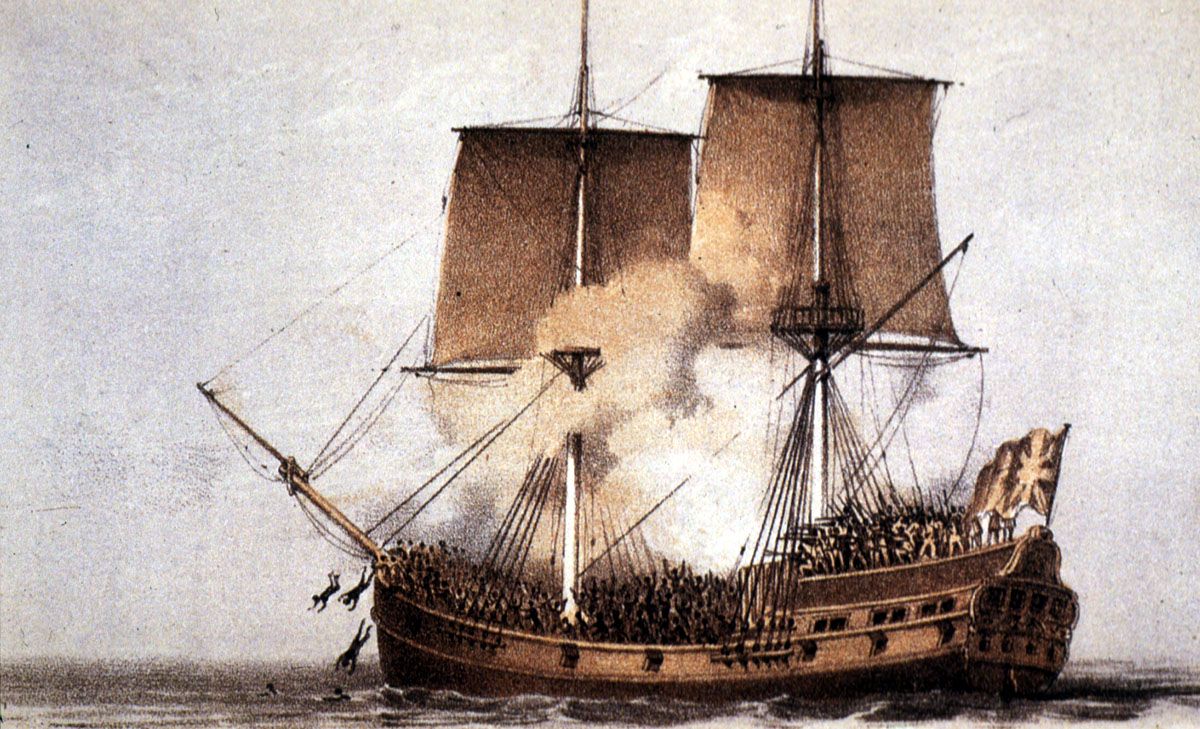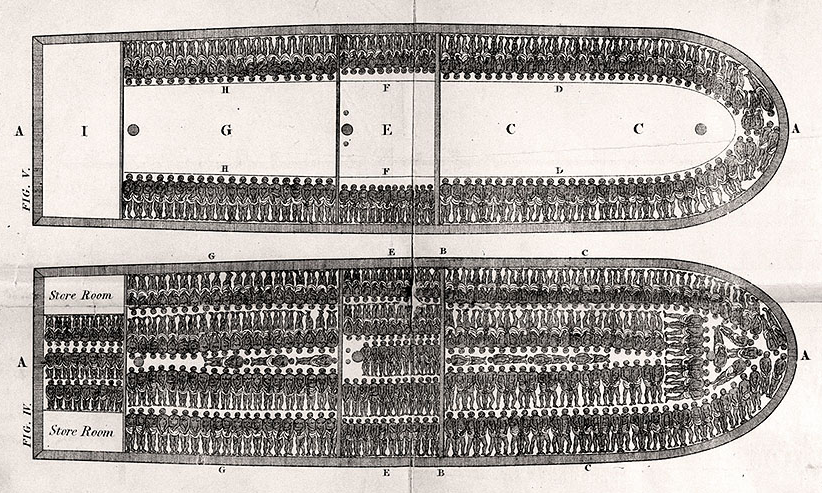CHAPTER ONE - A Retelling

He opens the door impatiently, "I thought you wouldn't darken my door again Mr. Wetmore." He gives way for the visitor to scamper in before closing the door after him.
"Persistently seeking truth is my business."
"You mean politics, don't you?"
"I would be after this story despite my politics. After all is said and done, you owe us the truth about this nation's past."
"If there's a debt, it is owed to three women."
"Women, what women? An hour of your time and I leave this wretched slum forever."
"A history is a quilt of different parchments that even the lowliest among us, contribute to the richness and diversity of this country."
"I've done and told you Hemings-"
"All anyone needs to know about me is my name Hemings. I'm not long for this world. What I leave behind will be the memory of me that survives in my children, the works of these hands," he stretches out big calloused hands, "And my name." He gestures to a chair. "Don't just stand there, come take a load off by the fire."
Sam Wetmore shifts uncomfortably shaking off droplets of melting snow from his cap by slapping it on his thigh. "You have guests I see."
Madison gestures to the people seated quietly, "My family. I don't talk of my past. Today, I do."
"Oral history is for cultures that have not evolved enough to document it."
"When you look at me Mr. Wetmore, what do you see?"
"A man sitting by the fire smoking a pipe."
"And beyond that?"
"I declare you're a mystery to me Hemings. I can't fathom why you choose to marry and live among dirt poor, freed ni- slaves."
"No man in his senses can hesitate in choosing to be free, rather than a slave," he mumbles to himself. He touches his chin and smiles wryly. "I'm no better than anyone that lives here. Slavery like generations of crippling poverty is a heavy indictment of racial prejudice and patriarchy."
"What now?"
"Until my twenty first birthday, I wasn't my own man-"
"The whisperings are true. My mother was an enslaved woman. All her children were property from the moment of birth. She often said, history is written by the victor. The gore is sanitised in catchy sound bites like "Veni, vidi, vici".
"I don't get it."
"Instead of the thousands of maimed bodies Julius Cesar left behind after the decisive five day campaign against Pharnaces at Zela, we remember the words of triumph he sent back to Rome, "I came, I saw, I conquered." His head shakes disbelievingly although large dark eyes sparkle with intelligence. "A large number of slaves, like me, look no different from any native European. I am three quarters European and a quarter African. You see, the Hemings in America sprung from my great-grandmother who was abducted from Africa."
"I'm here to write your oral history."
"I wouldn't be sitting here, opposite from you if it wasn't for her. My oral history begins with Susannah, a full blooded African woman."
"I see," he ruminates on this unhappily anxious to move on.
"Your ancestors may have landed on Plymouth Rock. I'm a descendant of one of the twenty two million slaves kidnapped from Africa and forcibly trafficked here. Plymouth Rock landed on us."
"Interesting turn of phrase," Wetmore ruminates.


"No doubt an inherited trait. You should know that my mother named me Alexandre but was persuaded by Dolley to change it to Madison after her husband James Madison instead."
Wetmore's jaw drops. "James Madison, the fourth President of the United States," he queries disbelievingly.
"Yes."
"Why Alexandre?"
"Mother was struck by Hamilton's oratory and poetic prose. Listen to this, 'The sacred rights of mankind are not to be rummaged for among old parchments or musty records. They are written, as with a sunbeam, in the whole volume of human nature, by the Hand of Divinity itself, and can never be erased or obscured by mortal power.' There's passion in those words even when the man himself is long slain."


"Balderdash, Hamilton died from wounds sustained in a duel."
"My father like James Madison hated Alexander Hamilton's politics even after Hamilton made real their dream for the former thirteen colonies to establish the new State's Capital in Washington DC, Virginia instead of New York." Whitmore scribbles furiously in this notebook unable to contain his excitement that his suspicions are being confirmed.
"Now back to the origins of my name. I know of one white man who bore the name of Hemings. He was an English Captain of a trading vessel which sailed between England and Williamsburg, Virginia, then a busy international port." Madison hands him a portrait photograph. "My African great-grandmother Susannah was enceinte, made 'pregnant' by Captain Hemings."

"She was a beautiful woman."
"Susannah Hemings has a regal bearing about her doesn't she?"
Wetmore nods, "How did they meet?"
"Capt. John Hemings rescued her among others after a slave revolt on the ship she was on, capsized. Like a good Muslim, she cared for the injured slaves and crew. She must have stolen his heart because he married her on his ship."
"Marry a ni- a Negro heathen?"
"A Muslim like most of the slaves that were brought to this country from West Africa. He was naïve and misguided to be sure. They didn't know partners in an interracial marriage would be nullified after a few months to discourage the practice."
"What happened?"
"Susannah was pregnant with his first child so John set her up in a boarding house, in the port of Williamsburg. A kitchen maid alerted slave catchers who sold her to plantation owner, Francis Eppes. Hemings happened to port when Susannah was in labour. He acknowledged being Susannah's husband and father of her mulatto child. He tried to purchase them from Eppes, who would not part with Susannah or his child, Elizabeth Hemings. Capt. Hemings offered all his capital, an extraordinarily large price for her but Mr. Eppes would not be moved.
Being thwarted in the purchase, and determined to be reunited with his wife and child of his own flesh and blood, Capt. Hemings resolved to take the child by force or stealth from their wooden shack. The knowledge of his intention came to Mr. Eppes ears, through the gossip of servants.
Susannah and her mulatto child, Betty were whisked into the 'great house' under their master's immediate care. I have been informed that it was not the extra value of the mulatto child, over other slave children that induced Francis to refuse to sell her. Slave masters then, as in later days, had no compunctions of conscience which restrained them from parting mother and child of however tender age. The Master was restrained by the fact that just about that time amalgamation, the breeding of the European race with the African race began, and the child was more a breeding curiosity of her owner who desired to see its outcome and profit from it in future. His plans thwarted, Capt. Hemings sailed from Williamsburg, never to return. Such is the story handed down to me.
Susannah and her daughter Betty stayed in the 'great house' until John Wayles married Eppes' daughter Martha. Susannah and eleven year old Betty were part of the marriage settlement. They were to remain the property of Martha Eppes Wayles and her heirs forever or be returned to the Eppes family should there be no heirs.
Martha died in 1748, about two and a half years after marriage. She had given birth to her only surviving child, also named Martha.
John Wayles married his second wife Mary but she died around 1759 having given him three children that survived to adulthood. He married his third wife the following year but she died within a year. Rather than marry again, Wayles took my grandmother, Betty Hemmings as his concubine.
Betty Hemmings, who lived in the big house and looked after the Wayles children by marriage, Martha Eppes Wayles, Elizabeth Cocke Wayles, Tabitha Cocke Wayles and Anne Cocke Wayles was by now around twenty six years old.

She had jumped the broom with a mulatto slave, Oliver Wayles who was considered her common law husband. They had four healthy children, Jack, Paul, Ruth and Sara. As was the matriarchy imposed on slaves, the children went by the name of Hemings.
John Wayles, their widower Master forbade Betty from sharing a bed with her common law husband Oliver when he took her as his concubine. Betty bore the master six healthy children, three sons and three daughters. They were Robert, James, Peter, Critty or Critta, Thena or Thenia and finally Sally. These children went by the name of Hemings.
Williamsburg was the capital of Virginia, and of course it was an aristocratic place, where the "bloods" of the thirteen colonies and the new State did congregate. Thomas Jefferson, was educated at William and Mary College, which had its seat at Williamsburg. He afterwards studied law with Geo. Wythe, and practiced law at the bar of the general court of the Colony. He was afterwards elected a member of the provincial legislature from Albemarle County.
Thos. Jefferson was a visitor at the 'great house' of John Wayles, who had children about his own age. He formed the acquaintance of the Master's first daughter Martha Eppes Wayles Skelton, the twenty three year old widow of Bathurst Skelton. An intimacy sprang up between the two third cousins which ripened into love.
They were married in 1772 and went to live at his country seat Monticello. That same year a daughter was born to them whom they named Martha 'Patsy' Jefferson.
The following year, John Wayles, Thomas Jefferson's father-in-law and my grandfather, died. The second daughter John Wayles had with my grandmother, his concubine was named Elizabeth 'Sally' Hemings. Sally was my mother. My grandfather died in 1773."
"What became of your great grandmother, grandmother and mother?"
"Susannah died of old age, on her rocking chair waiting for her husband to return. My grandmother, Betty Hemings and her ten mixed-race children, including my mother Sally were among the more than one hundred slaves Martha and Thomas Jefferson inherited. My mother was a baby, her and six youngest siblings were three-quarters white in ancestry and half-siblings of Martha Wayles Jefferson. As my family set about working as domestic servants at Monticello, Thomas Jefferson was working on the Declaration of Independence, becoming a Legislator and Statesman."
"Didn't he go to France?"
"Before his appointment to the position of Minister to France, his wife Martha died. Sometime after her interment, he attended to and arranged his domestic affairs. He left for France, with his eldest daughter Patsy and two slaves, in July 1784, arriving in Paris the next month."
"Was Patsy the only child Martha bore?"
"In ten years of marriage, Martha bore Thomas Jefferson six children: Martha 'Patsy', Jane, a son who lived for only a few weeks; Mary 'Polly'; Lucy Elizabeth, and another Lucy Elizabeth Jefferson. Only Martha and Mary survived more than a few years.
After Lucy died of whooping cough three years later, Jefferson sent for his surviving daughter, nine year old Polly Jefferson, to live with him. My fourteen year old mother Sally Hemings was chosen to accompany Polly as her body servant to France after my aunt became pregnant and could not make the journey."
"Your mother, Sally was therefore Patsy's half-aunt. What was the age difference between them?"
"My mother was a year younger than her."
"How long did they stay in France?"
"My mother's and Polly stayed for about twenty six months. But during that time my mother who was fourteen years old became Mr. Jefferson's concubine. When he was called back home she was enceinte 'pregnant' by him. He desired to bring my mother back to Virginia with him, she demurred."
"Could a slave refuse to return with their Master," he asks perplexed.
"My mother was beginning to speak French well. She was free in France because the barbarity of that institution was abolished after the Revolution in 1789. If she returned with my father to Virginia she would be re-enslaved. So she refused to return with Thomas Jefferson.
To be continued...
Bạn đang đọc truyện trên: Truyen247.Pro